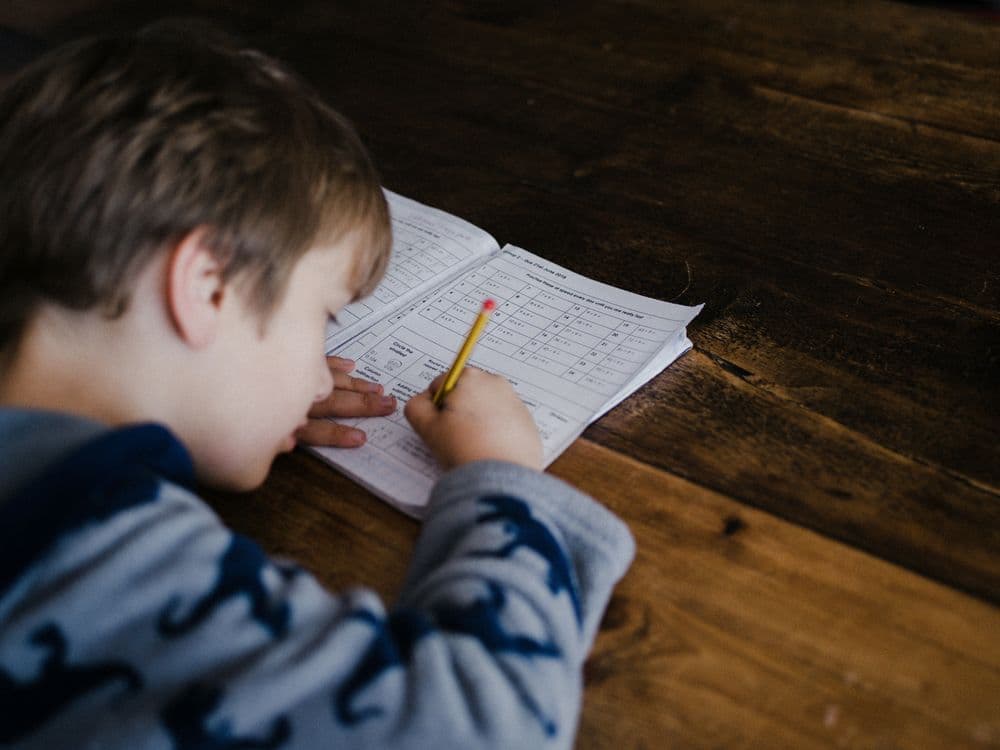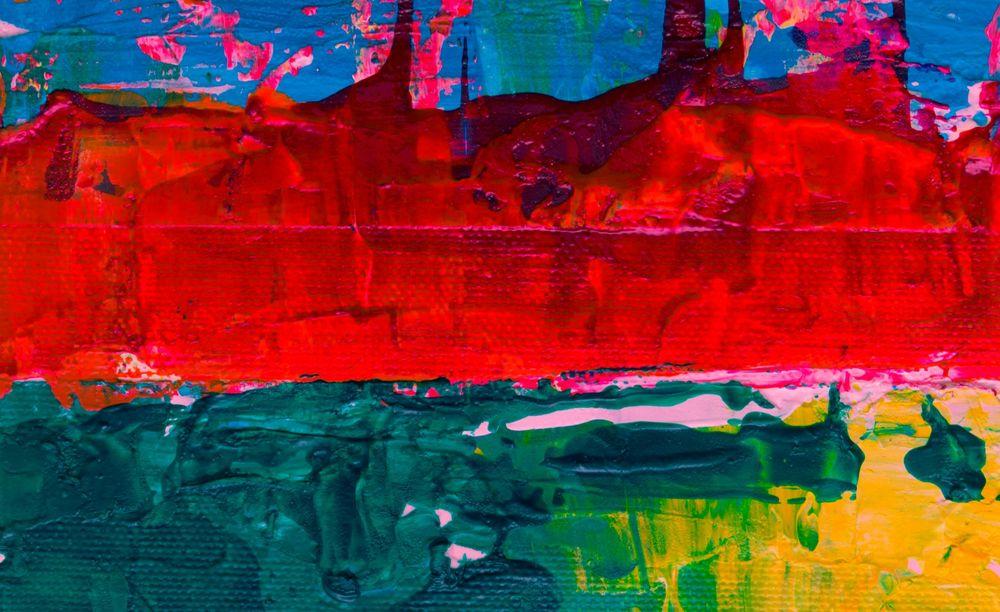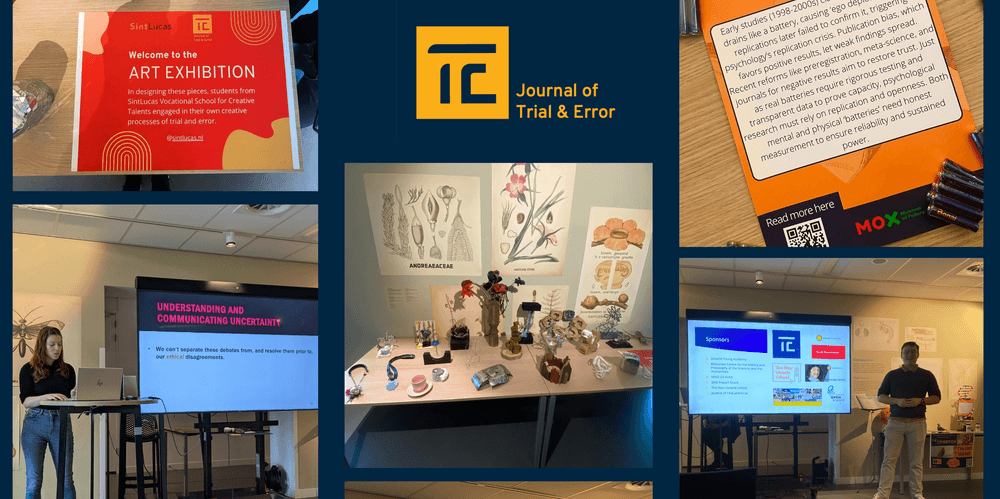~ 10 min read
Let’s Focus on Learning From Mistakes Not on Avoiding Mistakes
Mistakes in a learning context
During my commutes I enjoy listening to the radio to stay up to date with politics, sports, tech developments and other news. Often, I encountered a radio commercial for training primary school children to perform ‘error-free’ calculations: ‘Learn how to calculate without mistakes in just a few weeks!’ Of course, I realise that commercials are often a bit overenthusiastic, provocative or in some cases (over)promising results. But still I wondered: Would this really work? What if a child still makes occasional mistakes after completing this training: can parents then demand a refund? Both seemed unrealistic to me…
After my initial surprise, I found myself fundamentally disagreeing with the underlying message of the commercial. Is it really necessary to focus this much on avoiding mistakes? Errors are an inherent part of the learning process [1-4]. When students do not make any mistakes in a course or assignment, it is too easy and the expected learning efficiency is low. On the other hand, when a course or assignment is too difficult, students might feel discouraged, also resulting in sub-optimal learning. Adjusting the level of teaching is an essential step to maximise the potential for learning. Providing the proper support is a balancing act sometimes referred to as ‘scaffolding’ in pedagogy and didactics [5].
Beyond the pragmatic argument that effective learning can take place through mistakes, one could also reflect more fundamentally on the goals that we want to achieve with our teaching. Do we truly want to focus so much on eradicating mistakes, and are we trying to train a generation of reliable ‘robots’? The world around us is changing rapidly: there are groundbreaking technological developments and at the same time we are confronted with a myriad of complex societal and environmental problems [6,7]. I believe that these circumstances demand us to focus not on creating human calculators, but on teaching children creative problem-solving skills and integrating the technological tools that we have at our disposal into our teaching programs [8,9]. Admittedly, the basic skills learned in primary schools are still the foundation for these more complicated competencies.
My teaching experiences
One of the most important things that I try to achieve as a teacher is to create an atmosphere where students are encouraged to try new things and do not feel too discouraged when they make a mistake. Such a ‘safe’ environment can enhance effectiveness of the learning process [10], while also making it more enjoyable. In particular, creative processes benefit from open exchange of ideas [11], and I try to contribute to such an environment in my research activities.
In some of my courses I have introduced computer practicals in Jupyter Notebooks [12], containing bits of easily modifiable Python code. When teaching these practicals, I noticed that some students ‘freeze’ when they get the first error message and immediately ask for help. My typical response is something along the lines of: ‘What is the error about?’. A surprisingly large fraction of these students do not even consider reading the actual error message (which is usually very informative in Python and the first clue for solving it). Now, I often intentionally steer students towards such errors, making the ability to handle them an essential learning outcome.
Encouraging students to undertake ambitious and unusual projects, even at the risk of failure, is one of the things that I enjoy so much about the Honours education that I coordinate for the bachelors programs in my department. The grading in these programs is not based on a typical numerical scale, but we use pass/fail grading with a strong emphasis on the students’ reflection on what went well, what went wrong, and what they have learned. Exploring real problems in an educational context, with the potential of failing, can provide excellent learning opportunities [13].
Success stories
A powerful way to demonstrate the value of mistakes is through sharing some success stories on how initial mistakes have ultimately led to spectacular results. I vividly remember attending inspiring lectures on entrepreneurship by a visiting professor, who shared how some of the companies that he started went bankrupt while others became highly successful. He explained that his failures were indispensable experiences towards his later entrepreneurial success. Also, within science there are several professors that have shared their ‘CV of failures’ [14], to steer away from the typical success stories and provide more visibility to the rejections and failures that pave the way towards it.
My favourite anecdote from mistakes in a research context is related to the development of chaos theory by Edward Lorenz [15]. He ran a computer model to predict the weather and saved intermediate outcomes of the calculations to a disk. It then turned out that the predictions that started from these intermediate outcomes were different from the calculations that were not written to a file in between. Ultimately, Lorenz concluded that small differences in the input can lead to drastically different output. Making a mistake and then pinning down what causes the mistake requires analytical thinking, but seeing that this ‘bug’ is actually an important finding by itself, also relies on the willingness to truly learn from mistakes.
I feel incredibly proud to be part of organisations where we look beyond simple success stories and appreciate efforts that lead to later success. This is apparent in the reward and recognition policy for promotions at Utrecht University with a strong focus on Open Science [16]. I am a strong supporter of Open Science [17-19] and aim to further stimulate its uptake through my roles as Ambassador of the Open Science Community Utrecht and Member of the Utrecht Young Academy. Through these organisations and initiatives like the Journal of Trial & Error, I feel overwhelming support in my ambition to learn more from mistakes!
References
1: Lorenzet, S. J., Salas, E., & Tannenbaum, S. I. (2005). Benefiting from mistakes: The impact of guided errors on learning, performance, and self-efficacy. Human Resource Development Quarterly, 16, 301–322. https://doi.org/10.1002/hrdq.1141
2: Potts, R. & Shanks, D. R. (2014). The Benefit of Generating Errors During Learning. Journal of Experimental Psychology: General, 143(2), 644–667. https://doi.org/10.1037/a0033194
3: Metcalfe, J. (2017). Learning from Errors. Annual Review of Psychology, 68, 465–489. https://doi.org/10.1146/annurev-psych-010416-044022
4: Young, M. (2019). The utility of failure: a taxonomy for research and scholarship. Perspectives on Medical Education, 8(6), 365–371. https://doi.org/10.1007/S40037-019-00551-6
5: Belland, B.R. (2014). Scaffolding: Definition, Current Debates, and Future Directions. In: Spector, J., Merrill, M., Elen, J., Bishop, M. (Eds) Handbook of Research on Educational Communications and Technology. Springer, New York, NY. https://doi.org/10.1007/978-1-4614-3185-5_39
6: DeFries, R., & Nagendra, H. (2017). Ecosystem management as a wicked problem. Science, 356, 6335, 265–270. https://doi.org/10.1126/science.aal1950
7: Lawrence, M., Homer-Dixon, T., Janzwood, S., Rockström, J., Renn, O., & Donges, J. F. (2024). Global polycrisis: The causal mechanisms of crisis entanglement. Global Sustainability, 7, e6. https://doi.org/10.1017/sus.2024.1
8: Chiu, T. K. F. (2024). Future research recommendations for transforming higher education with generative AI. Computers and Education: Artificial Intelligence, 6, 100197. https://doi.org/10.1016/j.caeai.2023.100197
9: Susha, I., Viberg, O., & Koren, G. (2024). Co-writing an essay with ChatGPT: Experiences and perceptions of students in higher education. European Conference on Information Systems Education Research (ECISER 2024), Cyprus. https://aisel.aisnet.org/eciser2024/3
10: Prashanti, E., & Ramnarayan, K. (2020). Ten maxims for creating a safe learning environment. Advances in Physiology Education, 44, 4, 550–553. https://doi.org/10.1152/advan.00085.2020
11: Castro, D. R., Anseel, F., Kluger, A. N., Lloyd, K. J., & Turjeman-Levi, Y. (2018). Mere listening effect on creativity and the mediating role of psychological safety. Psychology of Aesthetics, Creativity, and the Arts, 12(4), 489–502. https://doi.org/10.1037/aca0000177
12: Koren, G., Edelenbosch, O., van der Wijst K.-I., & Zwaan, A. (2023). Interactive learning experiences with open source Jupyter Notebooks. Teaching and Learning Collection, Centre for Academic Teaching and Learning, Utrecht University. https://teaching-and-learning-collection.sites.uu.nl/project/interactive-learning-experiences-with-open-source-jupyter-notebooks/
13: Lanni, J. (2021). Why I teach my students about scientific failure. Science. https://doi.org/10.1126/science.caredit.acz9901
14: Stefan, M. (2010). A CV of failures. Nature, 468, 467. https://doi.org/10.1038/nj7322-467a
15: MIT News (2008). Edward Lorenz, father of chaos theory and butterfly effect, dies at 90. https://news.mit.edu/2008/obit-lorenz-0416
16: Woolston, C. (2021). Impact factor abandoned by Dutch university in hiring and promotion decisions. Nature 595, 462. https://doi.org/10.1038/d41586-021-01759-5
17: Blanken, P. D., Brunet, D., Dominguez, C., Goursaud Oger, S., Hussain, S. et al. (2022). Atmospheric Sciences Perspectives on Integrated, Coordinated, Open, Networked (ICON) Science. Earth and Space Science, 9, e2021EA002204. https://doi.org/10.1029/2021EA002204
18: Dwivedi, D., Santos, A. L. D., Barnard, M. A., Crimmins, T. M., Malhotra, A., et al. (2022). Biogeosciences Perspectives on Integrated, Coordinated, Open, Networked (ICON) Science. Earth and Space Science, 9, e2021EA002119. https://doi.org/10.1029/2021EA002119
19: Koren, G., Ferrara, V., Timmins, M., & Morrison, M. A. (2022). Global environmental change perspectives on Integrated, Coordinated, Open, and Networked (ICON) Science. Earth and Space Science, 9, e2022EA002231. https://doi.org/10.1029/2022EA002231





